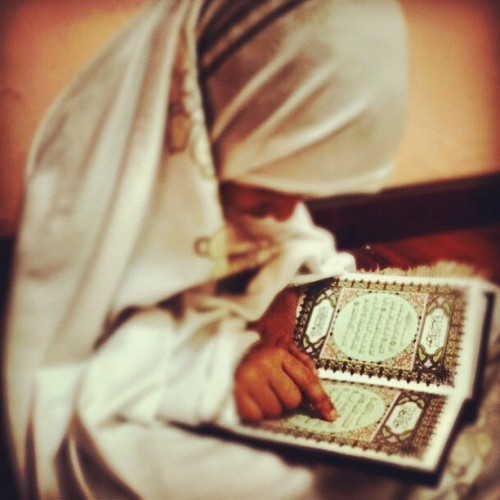Early years upon the Manhaj Salaf
Ibn Qudamah
Mukhtasar Minhaaj Al-Qaasideen
The child is taught to not boast in front of his friends and peers about something that his parents own, or to boast regarding his food and clothes. Rather he is nurtured upon modesty and being kind and generous to whomsoever he has a relationship with. And he is to be prevented from taking something from another child like him. He should be taught that inferiority is in taking and that superiority and dignity is in giving. And he should be made to not like gold and silver.
He is to be prohibited from spitting in gatherings, blowing his nose, yawning in front of others, and from sitting with his legs pointed, one on top of the other.
He should also be accustomed to speaking little and should not speak except when answering a question or fulfilling a request. He should also master the skill of listening well, when others are speaking especially if the one speaking is older than him. He is to be taught to stand for the one who has authority over him and to sit close to, next to, or in front of such a person.
He is to be prevented from lewd speech and that he keeps company with those who use such speech – for indeed the foundation of protecting a child lies in keeping him away from bad friends.
It is also from good practice that when the child finishes from his studying that he is allowed to play in a good way, so that he is able to relax from the difficulty and strictness of learning and discipline. It is has been said,
‘Relax the heart and mind; strengthen the memorisation and intellect.’
The child should be cultivated upon obedience towards his parents and towards the one who educates him, and he should revere such people.
Thereafter, when he reaches the age of seven years, he is to be ordered with the Salaah (obligatory prayers), and he is not to be excused from not being in a state of purity (by knowing the wudhu, and remaining in this state) so that he becomes used to it. He should also be reprimanded from lying and deceit, and then when he approaches puberty he should be taught the various rulings of Islaam and be made responsible for them.
You should know that food is a type of medicine and the objective behind eating is to strengthen the body in order to show obedience of Allah, the most High, through worship. This Dunya (worldly life) will not remain forever and death cuts off the pleasures of this world. Death awaits each person and may arrive any hour. The intelligent one, therefore, is the one who prepares for the Aakhirah (the Hereafter).
Hence, if the upbringing of the child is righteous then this will all become firm in his heart – similar to how an engraving becomes very firm on a stone.
Sahl Ibn Abdullah once said, “I was a child of three years, and I would stay awake at night looking at my uncle, Muhammed bin Sawwaar, praying. So he said to me one day, “why don’t you remember Allah, the one who created you?”
So I asked, “and how do I remember Him?”
He replied, “Say, three times in your heart without moving your tongue: Allah is with me, Allah is watching over me, Allah is a witness over me.”
I then said this a number of nights until I became accustomed to this. He then said to me, “say it eleven times every night.”
So I said it, and I felt the sweetness of this statement in my heart.
A year on from this, my uncle said to me “Memorise and safeguard what I have taught you, and act according to it up until you enter your grave”
So I continued acting upon these words for years and I would find the sweetness of it in my privacy.
He then said, “O Sahl, whomsoever Allah is with, and He watches him and is a witness over him – do you think such a person should disobey Allah? Beware of disobeying Allah.”
After this, I advanced to school and memorised the Qur’aan when I was only six or seven years old. I would then fast all the time, my daily sustenance was bread made from barley and thereafter I would wake during the night in order to pray.









